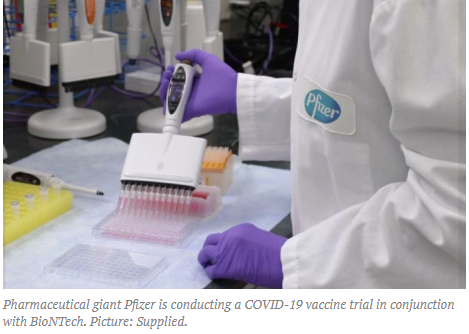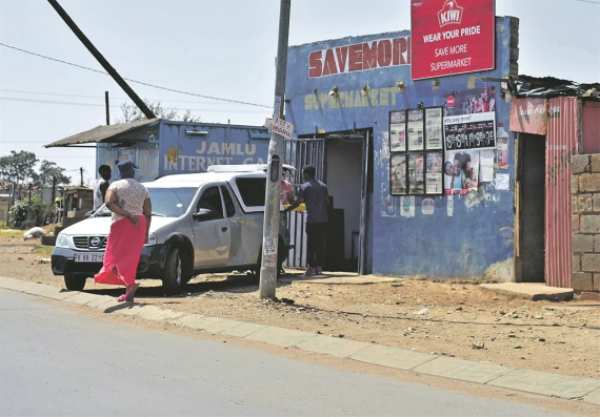Countries like the United States will ensure its citizens are catered to first, while the rest of us will have to wait a little longer to be protected from the coronavirus, which has infected more than 55 million people around the world and claimed the lives of more than 1.3 million others.
JOHANNESBURG - If US pharmaceutical giant, Pfizer, and its German partner, BioNtech, get their way, the COVID-19 vaccine they’ve developed could be rolled out within weeks. But when it will reach South Africa is still a question, with experts saying that realistically, we could only get a vaccine in the middle or latter part of 2021.
Another pharmaceutical giant, Moderna, whose vaccine development was funded by the US government, also reported impressive results, with them showing a 95% efficacy across all age groups.
Countries like the United States - which pumped hundreds of millions of dollars into the development of candidate vaccines - will ensure its citizens are catered to first, while the rest of us will have to wait a little longer to be protected from the coronavirus, which has infected more than 55 million people around the world and claimed the lives of more than 1.3 million others.
Experts agree on who should be prioritised when the country secures its first batch of COVID-19 vaccines – health workers, patients with comorbidities, the elderly and other people considered high risk would be first on the list.
But South Africa has options - one of which is the Covax facility.
This initiative by the World Health Organization, vaccine alliance GAVI (run by the Bill and Melinda Gates Foundation), as well as the Coalition for Epidemic Preparedness Innovations aims to, among other things, negotiate prices and ensure equitable vaccine distribution for the 184 countries who have signed up for the facility.
Co-director of South Africa's COVID-19 Ministerial Advisory Council, Professor Salim Abdool Karim, said that while it would be much later when the country gets its hands on a vaccine, there are other important things to factor in before any roll-out can happen.
"The news of the vaccine has come fast. All of us are now scrambling to get all our pieces. We thought we [had] the entire next year. We are now fast-tracking those plans," he explained to Eyewitness News.
These plans include making sure that a vaccine best suited for South Africa is chosen, that there’s reasonable infrastructure preparedness for distribution and prioritisation of who gets it first.
But Karim added that it was anyone’s guess when the vaccine would become available.
"Remember these companies have not yet made the vaccines. It’s not like vaccines are sitting somewhere [and] they just have to be shipped. They still have to be made. We have no idea how long it’s going to take. I think we will be lucky if we get vaccines in the third quarter of next year."
Wits University professor of vaccinology, Shabir Madhi, believes that government should have started working on these plans a long time ago.
"That we don’t spend another three to six months figuring out how to get the vaccines to people. There will be a level of unfairness with about 30% of the population which have comorbidities and the elderly. We will be fortunate if we get as many as 20% vaccines."
"We are going to need to be strategic about who gets it. People with diabetes, hypertension, severe obesity. Now that group as a whole is not insignificant. That probably makes up 40% of the adult population in South Africa and I'm not even talking about HIV and tuberculosis," he said.
Madhi said that if South Africa could secure vaccinations for between 20% to 25% of the adult population, it would be a great start.
It's hoped that other candidate vaccines in human trials will return encouraging results, thereby boosting the chances of access. South Africa is already involved in four other human trials, which Madhi said was an advantage for the country.
While rich countries have placed orders in their billions, many countries, including South Africa, will have to wait, and in the meantime ensure that strict COVID-19 safety protocols are adhered to.
Read full article HERE





